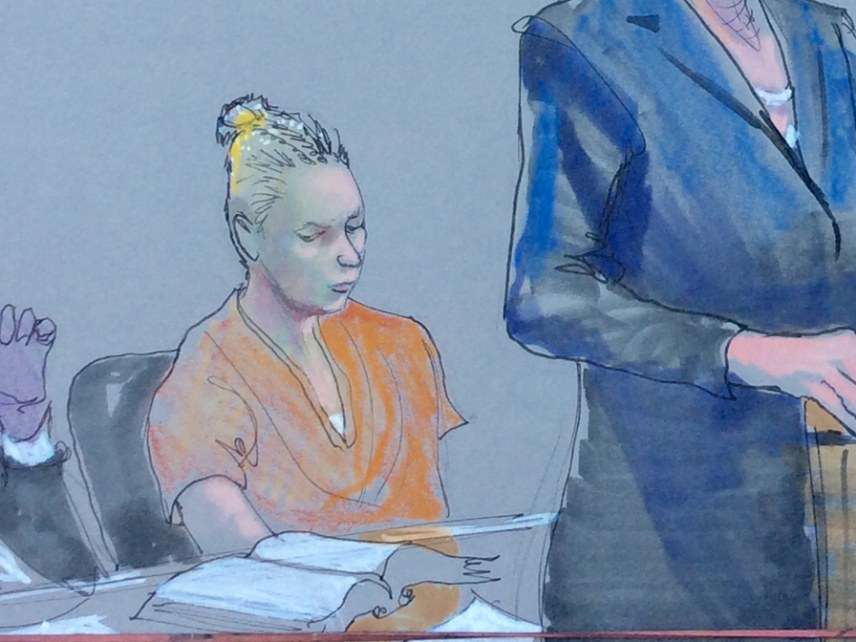After a Year Stuck in Jail, Reality Winner to Accept Plea Deal for Leaking NSA Report on Russian Election Meddling
Our terrible federal espionage laws won't let her argue the leak served the public's interest.

Reality Winner—the young contract employee arrested and prosecuted for espionage after leaking a secret National Security Agency (NSA) report about Russian attempts to infiltrate U.S. voting systems prior to the 2016 election—has reportedly accepted a plea deal.
Winner was arrested a year ago, the first leak prosecution under President Donald Trump. The 26-year-old woman worked as an NSA contractor near Augusta, Georgia. She is accused of leaking a top-secret report to The Intercept detailing attempts by Russian hackers to infiltrate voter registration systems.
Winner's case immediately became politicized because of her own personal beliefs and public criticisms of President Trump. But as I noted back then, there was nothing about the report Winner leaked that connected to Trump at all. It was information that Americans arguably deserved to know about attempts by foreign governments to directly interfere with election outcomes. It wasn't about silly social media campaigns or Twitter bots.
Unfortunately, the Espionage Act doesn't care why somebody leaks top secret information and the law doesn't care if a leak is arguably in the public interest. That's why Edward Snowden is hidden away in Russia. Even if many Americans believe the surveillance information that he leaked served the public's interest and right to know, he's not allowed to raise that defense in a trial.
So it goes with Winner. Her mother, Billie Winner-Davis, told the Atlanta Journal-Constitution that this played into the decision to accept a plea. Winner potentially faces a sentence of up to 10 years in federal prison and a fine of $250,000 if convicted (though she'd probably be sentenced to much less).
Winner-Davis speculated that the Espionage Act—which takes only the underlying act of leaking into account, not motive or mitigating circumstances—was too difficult to fight. Her daughter's legal team suffered one defeat after another in rulings handed down by the judge, and Epps declined to release Winner from jail while her charges were pending.
"I'm not happy about it," Winner-Davis said of the plea deal. "I still feel like the espionage charge is wrong. I feel like it's harsh. I feel like it doesn't allow a defendant to defend themselves."
Whatever happens in court next week, she said she will continue to fight to clear her daughter's name: "Regardless of what she's been charged with, she's not a traitor to this country."
Winner was denied bail this whole time, even though she's very obviously not a danger to the community. Federal judges accepted the possibility that she's a flight risk, even though she had given up her passport and agreed to be monitored, based on her previous declarations of support for both Snowden and Julian Assange.
The details of the plea won't be known until next week. Winner is just the latest of a small parade of leak-related prosecutions that started under President Barack Obama, and that the Trump administration is more than happy to continue.


Show Comments (45)